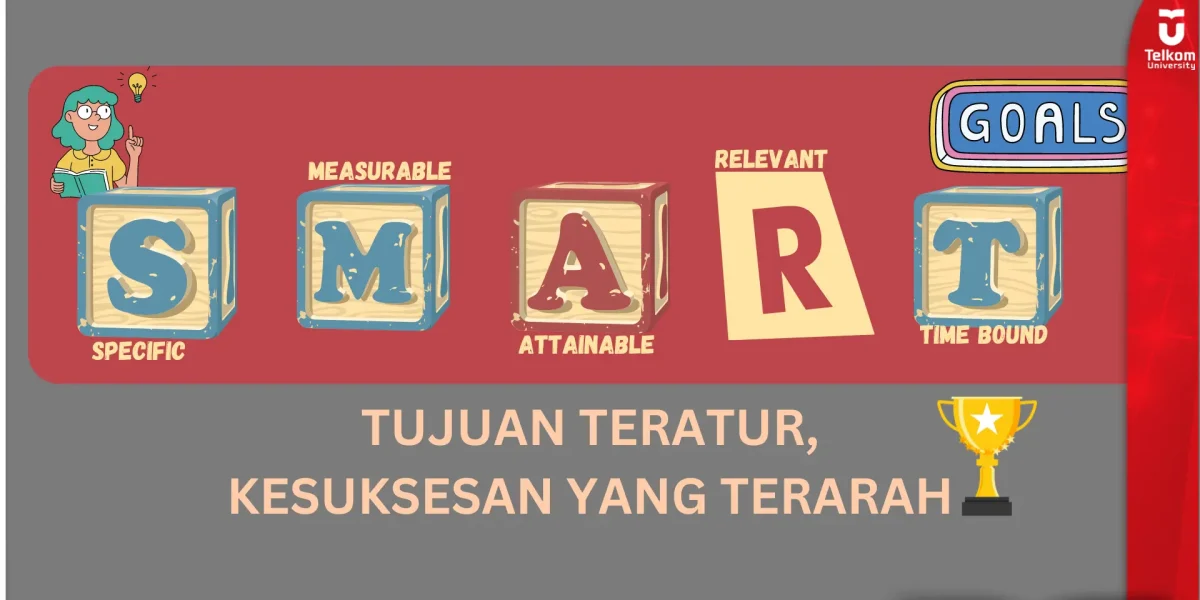S.M.A.R.T. Goals: Organized Goals, Directed Success
Setting smart and purposeful goals can help individuals or teams to improve performance, manage time more efficiently and achieve significant targets. In the world of work or even everyday life, some people often face challenges in achieving their goals. Without clear and measurable goals, one may feel lost, have difficulty managing priorities and lack motivation. To overcome this, there is a tool called “SMART Goals” that can provide a deep understanding of the benefits and methods of smart goal setting. You can find a more detailed review in the article:
Importance of Goal Setting
Setting a goal for everything you do or are doing is important. Without a clear goal, there will be nothing to motivate someone to move forward. The goals or targets set do not have to be complicated, but rather one needs to set goals that are simple, clear and well-directed, as anyone who sets clear goals is likely to enjoy greater success more consistently.

Setting goals will open up better opportunities that you may not have realized. To overcome this, there are approaches that can make it easier to set goals and ways to achieve these goals.
Definition of SMART Goals

SMART Goals is one such tool that has simplified the teaching of goal-setting principles by making the underlying practices necessary to achieve increase motivation and improve one’s chances of achieving the set goals. In the 1940s through the 1950s there were many technical education publications that began to discuss the benefits of specific and measurable goals. (Morrison, 2010).
The acronym SMART Goals is written using the following guidelines that an effective goal should have:
Specific – define exactly what the objectives are with clarity and detail, and avoid setting ambiguous objectives. With specific goals, individuals and teams can be more focused and motivated to achieve those goals.
Measurable – Identify objectives that can be measured using clear performance or achievement indicators. With measurable goals, individuals or teams can monitor and oversee whether the goals have been achieved.
Achievable – Set realistic and achievable goals by considering several available aspects such as financial aspects, resources, and other matters. With realistic goals, you can convince individuals or teams to achieve these goals.
Relevant – Set goals that are relevant or in line with the vision, mission and goals of the individual, team or organization. With relevant goals, individuals or teams will be more motivated to achieve these goals because they know that what they are doing is in line with what they should be doing.
Time Bound – The goals set should have a deadline for achieving them. By setting a deadline, the individual or team has the drive and responsibility to achieve the goal within the specified time.
Using SMART Goals in Daily Life
To make it easier to understand, here is an example of using SMART Goals in everyday life:
1. SMART Goals : Improves Fitness
Specific – Exercise for 1 hour every day
Measurable – Record progress in distance, time or calories burned each day.
Achievable – Choosing the type of exercise that suits the individual’s schedule and abilities
Relevant – Improves overall fitness and health for the body
Time Bound – Consistently perform within two weeks
By setting these things, the goal of improving fitness will be achieved regularly and in accordance with predetermined targets.
2. SMART Goals : Improving Korean Language Skills
Specific – Learn Korean using the duolingo application
Measurable – Take notes and reflect on the understanding of each learning available.
Achievable – Set time to study for a few minutes every day.
Relevant – Improve knowledge and skills in Korean
Time Bound – Know and be able to read hangul letters for one month
By determining these things, the goal of improving Korean language skills will be achieved regularly and in accordance with the predetermined targets.
3. SMART Goals : Improving CV Writing Skills
Specific – Participate in CV training or courses to improve skills
Measurable – Record development and progress in the application of new skills
Achievable – Choose the type of training or course that suits the individual’s schedule and abilities
Relevant – Increase competence and career opportunities
Time Bound – Get a job using a CV resulting from attending training or courses within 1 year
By determining these things, the goal of improving skills in creating a CV will be achieved regularly and in accordance with the predetermined targets


